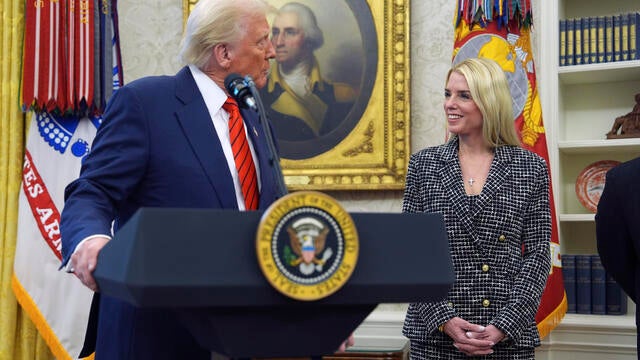

No response returned

Washington — The House on Thursday passed a landmark piece of legislation to regulate cryptocurrency after its fate appeared in limbo when right-wing Republicans staged a rebellion that brought the floor to a standstill.
The bill, known as the , is the first major crypto legislation ever passed by Congress. It now heads to President Trump's desk.
It passed in a bipartisan vote of 308 to 122, with 206 Republicans and 102 Democrats supporting it.
On Tuesday, a dozen conservatives sank a procedural vote to advance three crypto bills, including the GENIUS Act, which establishes a regulatory framework for the $250 billion market for , a type of cryptocurrency tied to the value of an asset like the U.S. dollar.
House Speaker Mike Johnson, a Louisiana Republican, abruptly canceled the remaining floor votes and the holdouts went to the White House to meet Mr. Trump, who later announced that they "have all agreed" to fall in line.
But drama unfolded during Wednesday's procedural vote when a few holdouts initially voted against moving forward before dropping their opposition, which was short-lived. The next procedural vote to set up debate on the spate of bills was held open for nearly 10 hours as the holdouts sought to merge a broader market structure bill with legislation to ban a central bank digital currency.
Republican Rep. Andy Harris of Maryland, who leads the conservative House Freedom Caucus, said holdouts had made a deal with Mr. Trump to package the two digital asset measures.
The plan ran into opposition from those who wrote the legislation and upended what House Republicans had termed "crypto week."
House Republicans had originally wanted the GENIUS Act to be married with the CLARITY Act, a broader bill that would set rules for when a digital asset is considered a commodity or security. Combining the crypto bills would have sent the legislation back to the Senate and slowed the process. Mr. Trump had pressed Congress to quickly pass the GENIUS Act as a standalone bill, saying it would make the U.S. a leader in digital assets.
This week, conservatives pushed to tie the CLARITY Act with the controversial Anti-Central Bank Digital Currency Surveillance State Act, which would prohibit the Federal Reserve from issuing a central bank digital currency. Conservatives said the Senate's stablecoin bill and the broader market structure legislation were insufficient because it would allow for a central bank digital currency, which they opposed.
"We feel like we need to be dealing with all this at once," said Republican Rep. Chip Roy of Texas, who helped stall the bill.
A deal was ultimately made late Wednesday to tie the ban on a central bank digital currency with the must-pass annual defense reauthorization bill, and holdouts again flipped their votes to allow the legislative process to move on.
The Senate last month after experiencing hiccups caused by a Democratic revolt over concerns about the Trump family's business ventures involving crypto and the potential that they could make the president vulnerable to foreign influence.
The Trump family's crypto investments have of dollars in recent months as the administration continues to loosen the federal government's regulatory approach to the digital currency industry as a whole. The White House has denied that there are any conflicts of interest and said Mr. Trump's assets are in a trust managed by his children.
Democratic critics were also worried that the legislation did not contain strong enough provisions to protect consumers, the financial system and national security.
It's faced similar criticism from House Democrats.
"By passing this bill, Congress will be telling the world that Congress is OK with corruption, OK with foreign companies buying influence," Rep. Maxine Waters of California, the top Democrat on the House Financial Services Committee, said Thursday.
Democrats who back the legislation have argued that regulations are long overdue, even if the measure is imperfect.
"The question is, do you want some rules of the road or no rules of the road?" Democratic Rep. Josh Gottheimer of New Jersey said during floor debate.
The broader market structure bill also passed with bipartisan support and now heads to the Senate. The legislation banning a central bank digital currency was approved largely along party lines.





